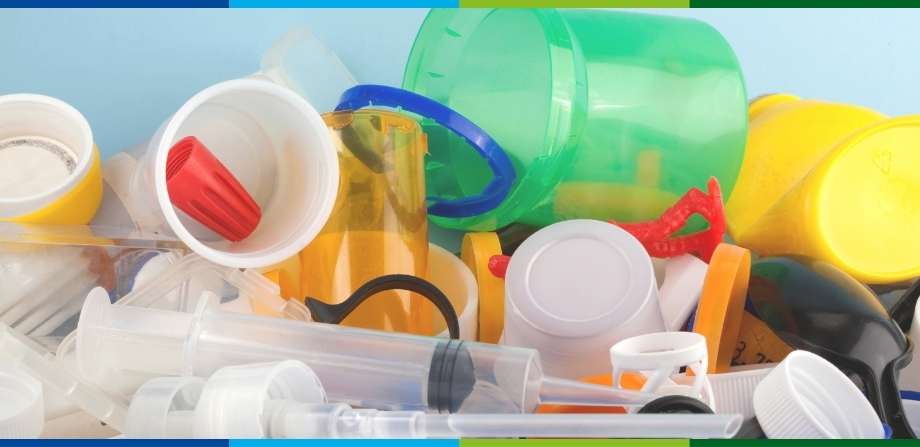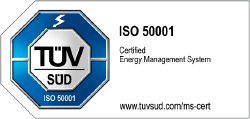- Team Focus | Hugo Mellouli, Head of Sales, Europe
- Introducing SANIBOX®: Enhancing our sustainable clinical waste containment solutions
- Reducing Glove Usage – A New Collaborative Solution
- Manufacturing milestones, sustainability success, and new beginnings
- Across the borders: How NHS Scotland is taking the lead in the race to net zero
Posted on by
Understanding plastics with safety and the planet in mind

As you can imagine, within a company that provides sharps and clinical waste containers, plastics and it’s recycling are huge talking points. In a perfect world, people wouldn’t be so dependent fossil fuels and their derivatives.
The reality is, as a human race, we aren’t there yet. We have become used to the safety and durability of it as a material in building, food protection, transport and healthcare.
The dual challenge
The plastics challenge can’t be discussed in isolation; plastic and safety are necessarily embedded in the world of healthcare. We prioritise the safety of frontline staff, patients and waste managers by providing strong containers made from durable material which will protect users, whilst also reducing the amount of virgin plastic used to protect our planet – without compromising on either.
Plastic is a very complex material and the different types of plastics such as PET (polyethylene terephthalate) and PP (polypropylene) must be separated to be recycled. This can be a challenge during the material recovery process, particularly when it comes to the quality, strength and usability of the resulting recycled plastic.
Nevertheless, we’re making a marked progress on reducing the amount of virgin plastic we use to manufacture our products, predominantly focussing on developing, testing and launching containers made from recycled plastic, working in partnership with specialist plastic recyclers.
Win-win solution
As well as using less fossil fuels and energy, developing our more sustainable containers saves the environment from excess pollution and wasted resources – an essential win for our planet.
Every time Daniels uses recycled plastic in products, they have to be meticulously tested and meet the same technical and safety standards as virgin plastic – standards which are highly stringent for medical and pharmaceutical waste containers. This has meant working hard to ensure they pass the vital quality and safety considerations of manufacturing sharps and clinical waste containers with flying colours – an essential win for the healthcare industry.
I’d like to recognise all those within Daniels who have worked, and continue working, tirelessly to make this happen. The team remain focussed on striving to offer customers the most sustainable packaging solutions in the quickest time possible while still meeting the highest standards in quality and safety.
Watch this space for our next sustainable innovation!
Plastic terms & their meaning
From recyclable polymers, repurposed plastic and post-consumer resin there’s been a new nuanced language for us all to learn and understand! Here’s some of the key terminology used when talking about plastic.
Virgin plastic is a material which is the direct resin produced from a non-renewable petrochemical feedstock, such as natural gas or crude oil. Virgin plastic material has never been used or processed before and contains no recycled materials.
PCR is an acronym for post-consumer Resin which is also sometimes known as post-consumer recycled (or repurposed) material. PCR plastic is a sustainable packaging solution manufactured from used, recycled and repurposed plastic such as drinks bottles and other plastic items that would otherwise be disposed of in landfill sites. The production of PCR involves the collection and sorting of discarded plastics from recycling programmes. These waste items are ground, washed, dried and turn into plastic resin pellets – ready to be used again in future manufacturing.
Polymer recycling is a material and energy recovery process in which a polymeric or plastic material is reprocessed from waste to make multiple recycled products.
Recycled plastics, most plastic items found in the environment such cigarette butts, plastic drinking bottles, plastic bottle caps, food wrappers, plastic grocery bags, plastic lids, straws and stirrers, and foam take-away containers, can be both recycled and made from recycled plastic like PCR.
Plastic Packaging Tax (PPT) was imposed by the government In April 2022 the tax was introduced to encourage greater use of recycled material, and combat the growing issue of plastic waste and pollution. This charges £200 per tonne for plastic packaging products that contain less than 30% recycled content.
Daniels PCR products
Daniels Healthcare has already developed, tested and launched the SHARPSGUARD® eco sharps & anatomical ranges made from at least 40% PCR, the SHARPSGUARD® eco pharmi range made from 100% PCR and the WIVA™ Infinity Series made from PCR.
In addition, there are plans in place to work through the entire product range and innovate them to be manufactured from as much recycled materials as possible.








